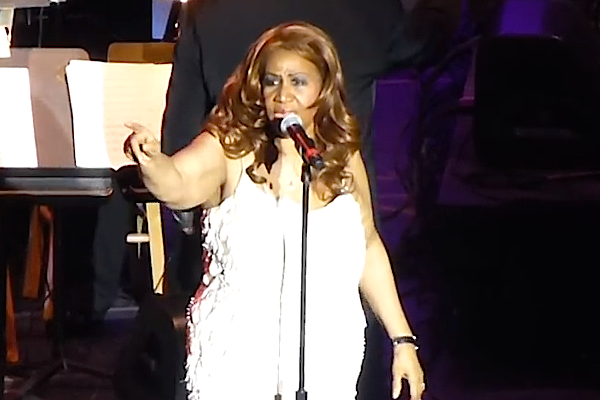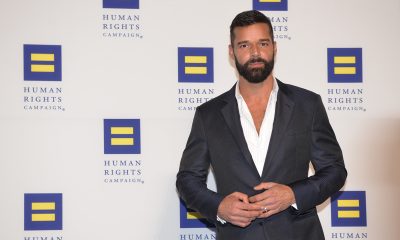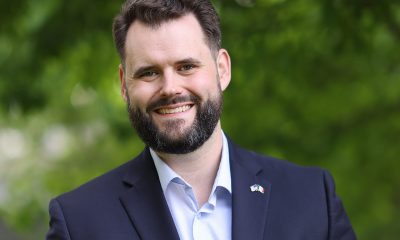a&e features
Aretha’s triple whammy
Queen of Soul’s on a roll with great local concert, her best new album in years (and a book she wishes had never seen the light of day)
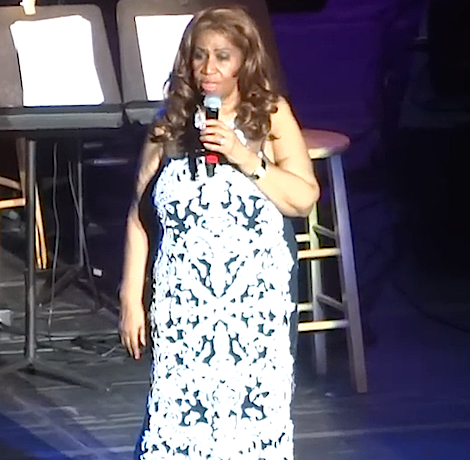
It wouldn’t be an Aretha Franklin concert without at least one head-scratching oddity. For the legendary diva’s latest concert in our region — last Thursday’s show at the Lyric in Baltimore — she came up (sure ’nuff!) with a real winner: for no apparent reason, she sang the encore “The Way We Were” off stage.
For the first minute or so, I suspected it might be a recording and that she was simply too lazy to sing her encore live. If you’ve followed the Queen for any length of time, this notion is hardly outside the realm of possibility. Many others suspected the same as the approximately 98 percent-capacity crowd started pouring out of the theater in droves. But just as many were calling it a night, Franklin — still off stage — inserted a few geographically specific ad libs to the song. It was just another “WTF” moment in a legendary six-decade career (seven if you count her teenage gospel debut) that has been, especially in the last 15-odd years, as noted for its eccentricities and oddities as its music.
These quirks are not as random as they may seem at first glance. With Franklin, who’s actually a lot more predictable than is widely acknowledged, her musical genius — and it truly is genius — is pretty much proportionate inversely with her indulgences, eccentricities and career- and relationship-sabotaging whims. A lifetime in show business has her well informed on just how much she can get away with and how much she has to deliver to keep the world eating out of her hand.
She did return, for a few fleeting moments, to wave good night while her orchestra — in another baffling choice — closed the show with a rousing instrumental rendition of the old warhorse “There’s No Business Like Show Business.”
It’s actually a great time to be an Aretha fan. Late last month she released her best album since 1998 (there’ve only been a few) with the all-covers set “Aretha Franklin Sings the Great Diva Classics.” Galaxies better than the interminably delayed 2011 train wreck known as “Aretha: A Woman Falling Out of Love,” Franklin — a singer known for her way with covers throughout her career — tackles stalwarts like “I Will Survive,” “I’m Every Woman,” “Midnight Train to Georgia” and, most notably, Adele’s “Rolling in the Deep,” which she tore up in a live performance on “Late Show with David Letterman,” a performance that went viral in September.
But if last week’s Baltimore concert — more on that in a bit — and the new album are the first two pieces of a modern Aretha trifecta, the third is a controversial pork chop for the ages that will be discussed and debated for decades — no exaggeration — to come: David Ritz’s towering biography “Respect: the Life of Aretha Franklin,” which dropped just days after her album in October.
At first glance, it’s easy to prematurely dismiss the book as a character assassination of almost “Mommie Dearest” proportions (not quite, but almost). The backstory is delicious: Ritz, having co-written Franklin’s 1999 memoir “Aretha: From These Roots,” laments in the “Respect” intro that he wasn’t able to crack the famously private Franklin facade. The ’99 book, although still a priceless piece of Franklin history in many ways, is about as honest and forthright as its heavily airbrushed cover photo (Franklin’s wildly fluctuating weight has dogged her for years, yet the cover makes her look more like Iman than herself at the time).
“In my view,” Ritz writes in the new book, “my two years of working on ‘From These Roots’ resulted in my failure to actualize the great potential in Aretha’s narration. I didn’t do what I set out to do. Since the publication of the book some 15 years ago, I have not rested easy. It took me a decade to recommit myself to the Aretha story, knowing that this time around, I would have to fly solo.”
What results is a no-holds-barred dishfest that has had media outlets as far ranging as the Daily Mail and Gawker regurgitating its bitchiest passages (which are legion). From family fights with her sisters Carolyn and Erma (also both singers) to passive-aggressive intransigence and egotism gone mad working with collaborators such as Luther Vandross and producer Oliver Leibert, to endless canceling of engagements at the 11th hour, a habit that cost her dearly in the courtroom and drove former booking agent Ruth Bowen (a priceless source of Aretha legend, quoted here at length) nearly mad, “Respect” drips with unflattering tale after tale, the cumulative effect of which is damning, yes, but also rather sad. If even a tenth of its stories are true, Franklin is still an egomaniacal control freak who’s impossible to deal with.
Modern-day Franklin would seem, at first glance, to be quite a different story. Having quit drinking and smoking many years ago and now having her weight under control after a mystery illness in the fall of 2010 — an episode she masterfully spun into an extended testimony/gospel vamp improvisation complete with de rigueur miraculous recovery that found her trotting Holy Ghost-style (the crowd ate it up) at last week’s show — one would like to think Franklin is at peace. Sadly, Ritz says that’s hardly the case. Although long banished from her inner circle, he makes a strong case now that she’s an imperious monster surrounded by yes people who don’t dare cross her. Beset by irrational fears — from her refusal to fly to her her habit of paying her band members cash which she carries around in a purse that’s never out of her site (an assistant both brought it out before Thursday’s show and retrieved it just as she left the stage so it was never out of her sight) — Ritz paints a portrait of a controlling and impulsive woman incapable of self scrutiny or critique.
Franklin, of course, begs to differ. She told the Wall Street Journal last week the book was “a book of trash” and nothing but “lies, lies and more lies.” News broke this week that she’s considering legal action.
It’s an interesting conundrum because the book is not the crucifixion either Franklin or the more salacious outlets would have you believe. What’s been totally lost in the discussion — hardly a surprise — is the book’s many passages of balancing anecdotes. Even those who share the book’s most unflattering tales — Carolyn, Erma and Bowen chief among them — are also some of Franklin’s most loyal compatriots.
“My sister was always engaged in acts of kindness and charity that went unreported,” Ritz quotes Erma as having said. “She and I would be watching the late news. There’d be a story about a woman who lost her home in a fire and the next thing you knew, Aretha was on the phone to the news station getting the woman’s number. The next day she’d send her a check for thirty thousand dollars.”
Brother and former manager Cecil is quoted as calling Aretha “an open-hearted person” and one who “always wanted to help her family.” One gradually senses that Aretha is, at heart, a good person and altruistic when push comes to shove.
Many moments of sheer and utter joy are recalled such as one where Erma, singing backup for Aretha in the studio, remembers her sister cutting — in a mind-boggling display of brilliance — the hits “Day Dreaming” and “Rock Steady” on the same day.
“That was a marvelous day,” she says. “Aretha absolutely tore up the vocal. We knew it was an instant classic.”
Anytime a highly unflattering celebrity biography comes out — one thinks of everything from J. Randy Taraborrelli’s “Call Her Miss Ross,” Christopher Ciccone’s “Life With My Sister Madonna,” Carol Ann Harris’s “Storms: My Life With Lindsey Buckingham and Fleetwood Mac” and many others — everyone debates the perceived verisimilitude of the books. Although opinions vary wildly — Taraborrelli even amended in a way, his Diana Ross books with a later, more balanced effort (2007’s “Diana Ross: a Biography”) — most would concur where there’s smoke, there’s at least some fire.
Groomed and mollycoddled by a doting father (the legendary Rev. C.L. Franklin) and armed with enough Grammys, RIAA certifications and life achievement awards (Rolling Stone even voted her the best singer of all time — an accolade she’s sure to have pointed out every time she’s introduced), it’s easy to see how someone like Franklin could manage to live in her own little world, largely immune to anything she wishes to ignore. (A curious side note: Ritz quotes Carolyn as saying how happy she was to hear of the Stonewall riots in 1969; Aretha, who has supported gay causes in more recent years, initially “found the topic distasteful,” Ritz says.)
The best argument against Ritz’s book, which has gotten strong reviews in USA Today and the New York Times, is that the vast majority of the people he quotes, such as Aretha’s siblings and the voluminously quoted Bowen, are dead.
“He offers no proof that he interviewed them,” says Roger Friedman, writing for showbiz411.com. “Ritz wrote a whole book about Ray Charles. But none of the Ray Charles info in ‘Respect’ was in the Ray book. Suddenly a dead Ray Charles has a whole lot of new quotes about Aretha Franklin.”
It’s a good point, but hardly a damning one. Having co-written a whole book with Charles, (1978’s “Brother Ray”), it’s wholly conceivable that the two spent many hours together and that Ritz could have substantial outtakes Charles either didn’t want in his own book or one party or the other didn’t think were pertinent.
Also curiously absent are the slightest comments or input from any of Franklin’s four sons, two of whom (again, oddly) are pictured with her in the booklet for her new album. It’s debatable the degree to which Franklin herself actually raised these boys, two of whom were born when she was a teen. A passing reference from sister-in-law Earline notes that at one point in the early ‘70s, “Clarence and Eddie were back in Detroit being cared for by Big Mama (Franklin’s grandmother),” and “Teddy was being raised by his father’s folks.” While Teddy played guitar for his mom for years, at times hawking his own recordings outside her shows, the Franklin children are largely a mystery. While Diana Ross counters much of her negative press with united-front photos of her with all five smiling grown children in tow every time she gets an award, I don’t know that a single photo of Franklin with all four of her boys has ever surfaced publicly (Tina Turner’s grown sons are equally as low-key and almost never seen).
This absence of comment is telling. A historian as thorough as Ritz surely tried to get their input. There are a few other flaws with “Respect.” Although perhaps unavoidable considering Ritz knows Franklin personally and witnessed some of the incidents first hand, the shifts into first person are jarring. And there are curious omissions. For all the talk of Aretha’s heavily religious (albeit liberal) formative years, we leave without the slightest sense of whether she has been much of a church goer in her adult years or, if celebrity and travel prevent it, where she gets her spiritual needs met now. Bishop Carlton Pearson was her guest at her 2012 Washington concert at DAR Constitution Hall and her faith background is essential to her persona. And although her appearance on a 1994 episode of “Saturday Night Live” might be seen as a minor matter overall, it gives an interesting insight into the legend. Perhaps compensating for a not-quite-ready-for-prime-time guest host Nancy Kerrigan (fresh off the ’94 Olympics) Franklin, in addition to being that week’s musical guest, also hilariously spoofs her persona in a mock BET interview sketch. If nothing else, it shows Franklin does not always take herself as seriously as Ritz and his flock of mostly dead mudslingers would have you believe. And she hardly sings her hit “Angel” at every concert as Ritz posits: in fact the only time she’s sung it at any of her D.C. concerts in the last decade was at her summer 2011 show at Wolf Trap.
Aretha’s cousin and long-time back-up singer Brenda Corbett, very much alive yet not in her usual spot at last week’s concert, is, however, quoted and is as forthcoming and candid as Carolyn and Erma (both, along with brother Cecil, sadly gone) were.
“I’ve been singing background with my cousin for some 42 years,” Ritz quotes her as saying. “And I still don’t know — record from record or concert from concert — where she’s going to hire me or fire me. Months will go by when she cuts off all communication with me. She’s furious with me and I never know why. Then she’ll call and we’re back together like nothing ever happened.”
It’s a pattern Ritz says happens over and over with family and longtime associates. And like abuse patterns — when many people over decades have eerily similar stories — the tales gain traction.
Ritz’s book ultimately succeeds because it holistically presents a balanced psychological portrait of the great legend. It’s an unexpectedly satisfying unofficial companion to Anthony Heilbut’s brilliant 2012 book “The Fan Who Knew Too Much: Aretha Franklin, the Rise of the Soap Opera, Children of the Gospel Church and Other Meditations.” Though only part of it focuses on Franklin, it’s the most contextualizing thing about her that’s ever been written. Ritz also deserves credit for having the balls to publish this while Franklin (72) is still alive. He could easily have taken the Darwin Porter (known for his trashy celeb bios always published within a year of the subject’s passing) approach, but he opted to forge ahead.
So what’s the deal with Aretha? Is it just Norma Desmond-ism — talent-plus-ego run amok?
Perhaps a quote from Carolyn sums it up best: “I think she was basically afraid that she wasn’t enough,” Ritz quotes her as saying. “Crazy as it sounds, she was afraid that she wasn’t good enough as a singer, pretty enough as a woman or devoted enough as a mother. I don’t know what to call it except deep, deep insecurity.
Ritz offers his own summation in the book’s coda. “In her troubled mind,” he writes, “control is the antidote to fear. She hires, fires and rehires a battery of publicists, booking agents and managers because, when all is said and done, she cannot relinquish control. … When these efforts fail, she deflects the blame. Self-scrutiny is not her way. Her methods of denial have been perfected over a lifetime.” He also writes, though, that she’s the “ultimate survivor, a symbol of strength” who “keeps moving forward, no matter what.”
Ritz also gains credibility to an extent because his love and admiration for the woman — of which he’s unabashed — comes shining through. His laments about the things he wishes Aretha would do, the career twists and turns he longs for her to have made, echo those expressed by many a gay man for the divas they love. With Franklin, it’s especially sad because the sheer magnitude of her greatest great moments indicate how much more she could have accomplished if she had personal discipline, the ability for introspection, a management team whose advice she heeded and better artistic instincts. Hers, unfortunately, have just as often let her down (like attempting a ballet routine at a Clive Davis tribute with a straight face) as reinforced or at times even expanded her legend (subbing memorably for an ailing Pavarotti at the ’98 Grammys).
His description of his ultimate dream for her furnishes a lovely, though bittersweet, moment: “I wanted her to realize a concert with only a superb jazz trio behind her as she sings George Gershwin and Cole Porter and the blues ballads of Percy Mayfield,” he writes. “I wanted her to sit at the piano and accompany herself as she revisits her best songs and the songs of Thomas A. Dorsey and James Cleveland and Curtis Mayfield” and to “put her performing and recording career in the hands of producers noted for impeccable taste, musical restraint and unfettered imagination.” They’re all things, sadly, that will likely never happen.
Leaving an Aretha concert, one has many similar thoughts. Her shows vary in quality — like Ritz, I’ve seen her on several occasions, merely going through the motions and serving up adequate, but hardly inspiring, renditions of her classic hits.
But catch her on a good night — and last Thursday was one — and there are magical moments to be had amidst the clutter (did we really need an on-stage presentation from the local Delta Sigma Theta chapter?) and repetition (she’s used Jackie Wilson’s “Your Love Keeps Lifting Me,” a song she’s never recorded, as her opening number for several years now; it’s a fine song she delivers solidly, but the lack of imagination considering her vast catalogue is inane).
Her cut from “Waiting to Exhale,” “Hurts Like Hell,” was a delicious surprise, that gave her a great little musical cushion upon which to unfurl her trademark melismas, “It’s Just Your Love” was a wildly unexpected deep album cut from the “Jump To It” album and the aforementioned testimony vamp had all the energy and passion one would expect from a soul legend and product of the church whose authenticity of faith has never been questioned.
Probably a little shy in terms of overall quality compared to her Nov. 2012 show at DAR (her last in the region), which included scintillating renditions of “Day Dreaming,” “Think” and “Something He Can Feel,” the Baltimore concert was still highly enjoyable. She looked resplendent in two different gowns and was far more spry and mobile than she was at her heaviest about five years ago. Even with the repetition, the woman truly never gives the same show twice. She mixes up her set list oceans more than her contemporaries like Dionne Warwick, Gladys Knight or Diana Ross, whose set list is essentially the same one she’s been using the last five years.
It’s all part of the joy and frustration of being an Aretha Franklin fan. As Ritz has learned the hard way, you either take the Queen on her terms or you don’t take her at all. Each person, fan and minion alike, has to decide for him- or herself if the sweet outweighs the bitter. Last Thursday night, it did.
- Overture (orchestra)
• Introduction of Aretha (8:52 p.m.) - Your Love Keeps Lifting Me Higher and Higher
- It’s Just Your Love
- Don’t Play That Song
- Hurts Like Hell
- Sweet 16
- gospel vamp/testimony
- Chain of Fools (w/ dancers)
- band jam — Another Star/band solos
• recorded track — Aretha returns dancing with Willie Wilkerson
• presentation from Delta Sigma Theta
• recognition of honored guests - Old Landmark
- I Remember (Keyshia Cole)
- Rolling in the Deep
- You Send Me (Aretha at the piano)
- Freeway of Love (with dancers)
- Respect (with dancers)
ENCORE - The Way We Were
- No Business Like Show Business (orchestra)
(show ends at 10:30 p.m.)
a&e features
Visible and unapologetic: MAL brings the kink this weekend
Busy lineup includes dances, pups, super heroes, and more
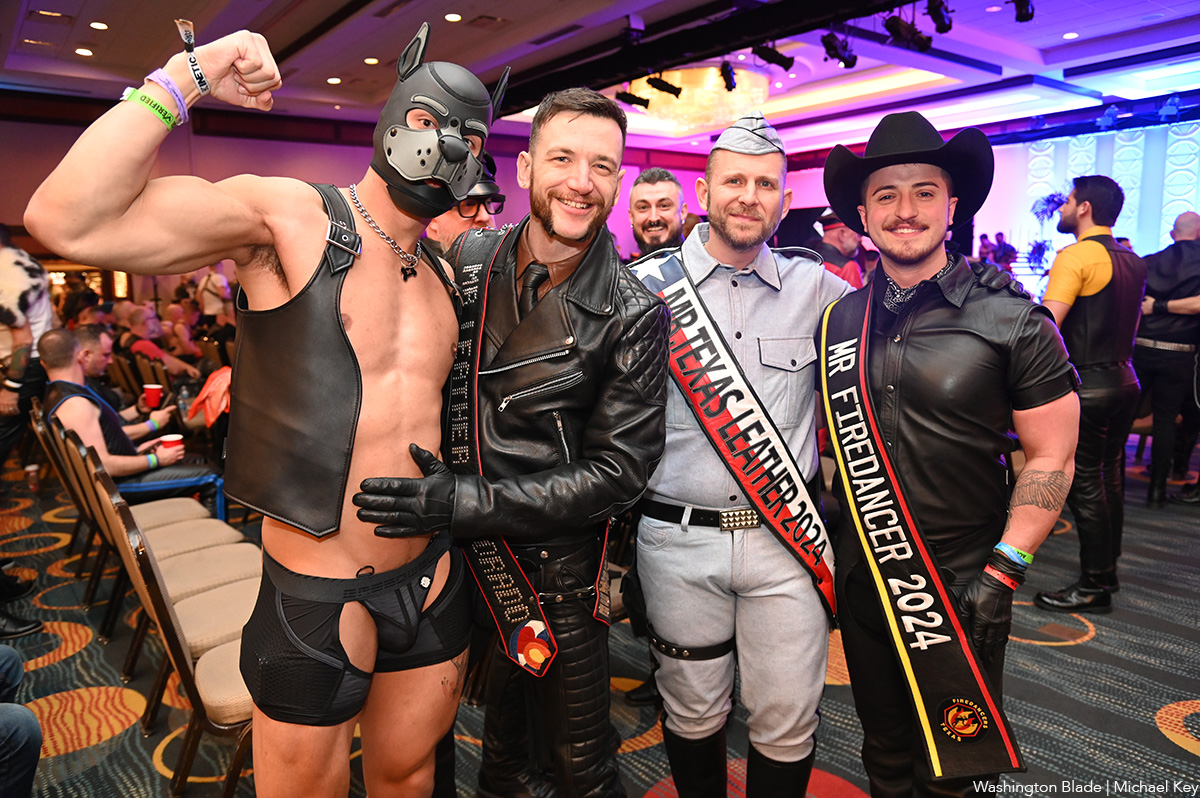
MLK Weekend in D.C. brings the annual Mid-Atlantic Leather (MAL) Weekend. Just a short walk from where Congress has been attacking queer Americans this year, MAL takes place at the Hyatt Regency Washington for several days of intrigue, excitement, leather, and kink.
The Centaur Motorcycle Club — one of several similar groups dedicated to leather in the country — has been hosting MAL in its current form for more than 40 years. Originally a small gathering of like-minded people interested in the leather lifestyle, MAL has grown to include a full four days of events, taking place onsite at the Hyatt Regency Washington (400 New Jersey Ave., N.W.). Select partner happenings take place each night, and many more non-affiliated events are scattered across the DMV in honor of and inspired by MAL.
MAL Weekend has become an internationally renowned event that celebrates fetish culture, yet it also raises funds for LGBTQ organizations, “reinforcing its legacy as both a cultural and philanthropic cornerstone of the global leather community,” according to MAL organizers.
During the day, MAL events at the Hyatt include workshops, social gatherings, shopping, and other in-person engagements for the community.
“The Hyatt underwent an extensive top to bottom renovation after last year’s event,” says Jeffrey LeGrand-Douglass, the event chair. The lobby, meeting spaces, guest rooms, and other areas have been updated, he notes, “so I am very excited for our guests to experience the new design and layout for the first time. And of course as with every year, we look forward to the contest on Sunday afternoon and seeing who will become our new Mr. MAL.”
In the evening, MAL hands the reins to partner KINETIC Presents, the D.C.-based nightlife production company. KINETIC will host four consecutive nights of high-production events that fuse cutting-edge music, immersive environments, and performance. This year, KINETIC is popping open doors to new-to-MAL venues, international collabs, play zones, and a diverse lineup.
According to KINETIC managing partner Zach Renovátes, 2026 is the most extensive MAL production to date. “The talent lineup is unreal: an all-star roster of international DJs, plus drag superstar performances at the Saturday main event,” he says.
Renovátes added that he’s “most excited about the collaborations happening all weekend — from bringing in MACHO from WE Party Madrid, to teaming up with local leather groups, to nonprofit partners, and Masc Diva [a queer nightlife collective].”
Official MAL events begin on Thursday with the Full Package/Three Day Pass Pick-Up from 5:30-8:30 p.m. at the Hyatt.
Thursday night is also the KINETIC kickoff party, called LUST. Running 10 p.m. – 3 a.m., it’s being held at District Eagle. DJ Jay Garcia holds it down on the first floor, while DJ Mitch Ferrino spins in the expansive upstairs. LUST features special performances from the performers including Serg Shepard, Arrow, Chase, and Masterpiece.
Renovátes notes that the LUST opening party at District Eagle coincides with the bar’s grand re-opening weekend. The bar will unveil its new permanent home on the renovated second floor. “it felt like the perfect place to start Mid-Atlantic Leather weekend — right in D.C.’s only dedicated home for kink communities,” he says.
After Thursday night, Friday is when daytime events begin at the Hyatt. The Exhibit Hall, on the ballroom level below the lobby, hosts upwards of 30 vendors, exhibitors, and booths with leather goods, fetish wear, clothes, toys, other accessories, providing hours of time to shop and connect with attendees and business owners. The Exhibit Hall will be open on Friday from 4-10 p.m., as well as on Saturday and Sunday afternoons.
DC Health is once again back at MAL, to provide preventative health services. In the past, DC Health has provided MPox vaccines, Doxy PEP, HIV testing, Narcan kits, and fentanyl test strips. This booth will be open on Friday 4-10 p.m.
Later, at 6 p.m., the Centaur MC is holding its welcome reception on the ballroom floor. After the Centaur’s Welcome Reception, the MIR Rubber Social is 8-11 p.m. A Recovery Meeting is scheduled at 10 p.m.
Many attendees enjoy visiting the guest room levels of the hotel. Note that to get in an elevator up to a hotel room, a staff member will check for a hotel room wristband. Non-registered guests can only access host hotel rooms if they are escorted by a registered guest with a valid wristband. Registered guests are permitted to escort only one non-registered guest at a time. Non-registered guests with a wristband who are already in the hotel before 10 p.m. may remain until midnight. However, non-registered guests without a wristband will not be admitted after registration closes.
Friday night, for the first time, KINETIC Presents is joining forces with WE Party to bring MACHO to Washington, D.C. This official MAL Friday event delivers two stages and two genres. On the UNCUT XXL stage, international Brazilian circuit superstars Erik Vilar and Anne Louise bring their signature high-energy sound. On the MACHO stage, Madrid’s Charly is joined by Chicago’s tech-house force, Karsten Sollors, for a blend of techno and tech house. UNCUT also features the XL Play Zone, a massive, immersive space exclusive to this event. The party takes place at the Berhta space from 10 p.m.-4 a.m..
“This year we’re bringing back the two-room format we debuted at WorldPride for both Friday and Saturday, so attendees can really tailor their experience — whether they’re in the mood for circuit or tech house.” says Renovátes.
Directly after Friday’s UNCUT XXL, UNDERWORLD Afters takes over District Eagle, from 3:30-8 a.m. International DJ Eliad Cohen commands the music.
Saturday, the Exhibit Hall opens earlier, at 11 a.m.. DC Health will also be back from 11 a.m. to 6 p.m.
Saturday is also time for one of the most anticipated events, the Puppy Mosh, running from 11 a.m. to 1 p.m. During the event, pup culture comes to life, when pups, handlers, and friends can enjoy an inclusive, safe pup zone. There is also a Recovery Meeting at 11 a.m., and the IML Judges Announcement takes place at noon.
The popular Super Hero Meet Up will be held 1:30 p.m. – 3 p.m., sponsored by One Magical Weekend, for cosplayers, comic enthusiasts, and their friends.
From 2-6 p.m., the Onyx Fashion Show will take place to showcase and highlight people of color in leather.
Finally, the Leather Cocktail Party – the original event of MAL – will be held 7-9 p.m. in the Ballroom. While this requires special tickets to attend, at 9 p.m. is the MAL cocktail party, which is open to wider attendees.
The last event of Saturday leaves the hotel, again a partnership with KINETIC. Kicking off at 10 p.m. and running until 4 a.m., it’s just the second time that KINETIC’s Saturday night party is an official MAL event and serves as the main weekend engagement.
Saturday night’s centerpiece is called KINK: Double Trouble. The night will feature a first-ever back-to-back set from international electronic music icons Nina Flowers and Alex Acosta on the Circuit/Tribal Stage. The other room – the Tech House Stage – curated by The Carry Nation and Rose, provides a darker, underground counterpoint, reinforcing the event’s musical depth and edge.
Beyond the DJs, KINETIC has called in the big shots for this party: “RuPaul’s Drag Race” legends Nymphia Wind and Plastique Tiara are set to headline. The party also takes place at Berhta.
Sunday, back at the hotel, there will be another Recovery Meeting at 10 a.m., and the Exhibit Hall opens again from 11 a.m.-5 p.m.
At 1 p.m., the anticipated and prestigious Mr. MAL Contest that celebrates the achievements of the leather community will be held in the Ballroom. This highly sought after title gives one man the power to become the Mid-Atlantic Leather man of the year. Sash and title winners must be (1) male, (2), a resident of North America, (3) At least 21 years of age; and (4) self-identify as gay. The first Mr. MAL was crowned in 1985. The Winner of Mr. MAL has the privilege of later competing in International Mr. Leather (IML) in Chicago on Memorial Day Weekend 2025.
From 4 p.m. to 12 a.m., MAL will hold its Game Night for the gaymers in attendance. There will also be a special screening of A24’s new film, “Pillion,” about a man who is swept off his feet when an enigmatic, impossibly handsome biker takes him on as his submissive.
Sunday closes with a community partner event produced by Masc Diva, featuring Horse Meat Disco with support from Coach Chris, at A.I. Warehouse in the Union Market district. It’s the same team that produced HMD during WorldPride at A.I. Warehouse.
Note that there are several types of passes for attendance to the hotel and parties. KINK VIP Weekend Passes include express entry, VIP areas, and enhanced amenities throughout the weekend, while MAL Full Weekend Package holders receive access to the official Sunday closing event.
At last year’s MAL events, KINETIC Presents raised more $150,000 for LGBTQ charities, and expects to match or exceed that impact in 2026.
Renovátes stated that “now more than ever, it’s important to create safe, affirming spaces for our community — but it’s just as important to be visible and unapologetic. We want to make it clear that the LGBTQ+ and leather communities aren’t going anywhere. We’ve fought too long and too hard to ever feel like we have to shrink ourselves again, no matter what the political climate looks like.”
In addition to the KINETIC events, various LGBTQ bars will hold parties celebrating the theme of the weekend. For example, Kiki, located on U Street NW, is hosting a party called KINKI, hosted by DJ Dez, on Saturday night. Sister bar Shakiki, on 9th Street NW, is hosting a party called Railed Out, a fetish-inspired party that features a play zone, on Thursday night. Flash, on U Street NW, will hold its infamous Flashy Sunday party to close out the weekend.
a&e features
Queer highlights of the 2026 Critics Choice Awards: Aunt Gladys, that ‘Heated Rivalry’ shoutout and more
Amy Madigan’s win in the supporting actress category puts her in serious contention to win the Oscar for ‘Weapons’
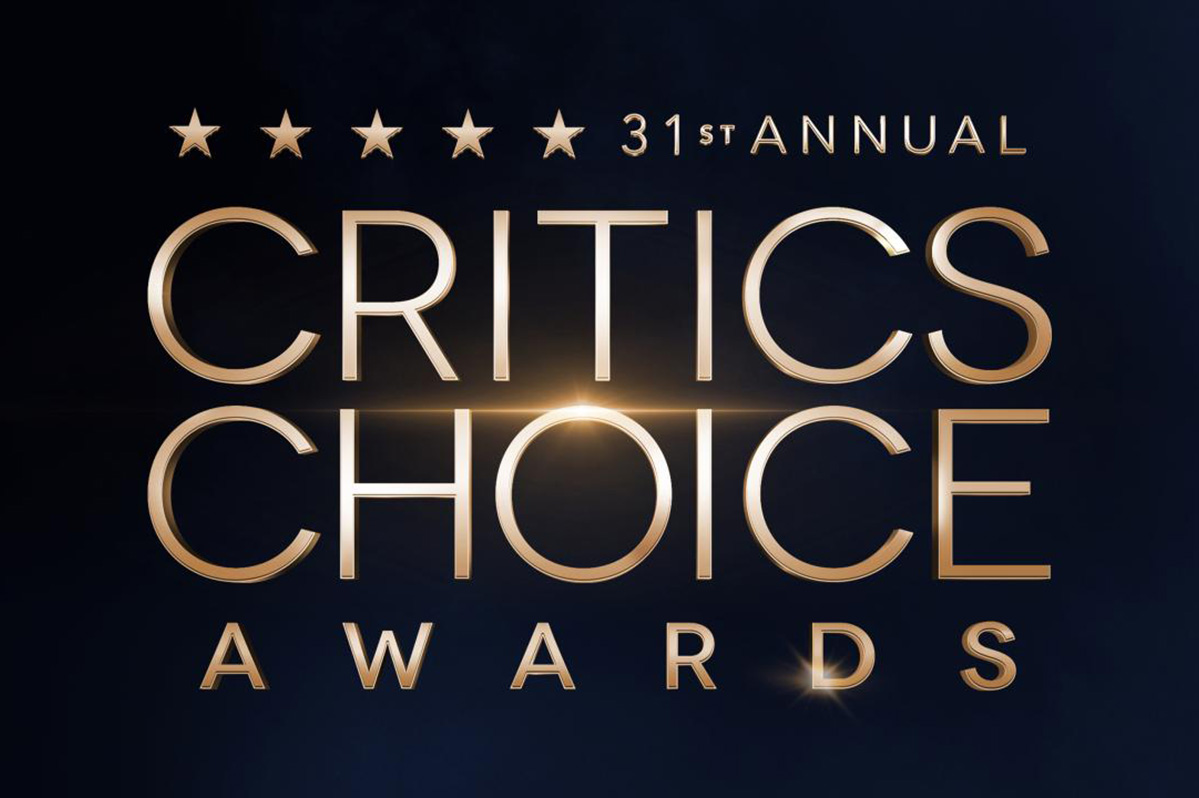
From Chelsea Handler shouting out Heated Rivalry in her opening monologue to Amy Madigan proving that horror performances can (and should) be taken seriously, the Critics Choice Awards provided plenty of iconic moments for queer movie fans to celebrate on the long road to Oscar night.
Handler kicked off the ceremony by recapping the biggest moments in pop culture last year, from Wicked: For Good to Sinners. She also made room to joke about the surprise hit TV sensation on everyone’s minds: “Shoutout to Heated Rivalry. Everyone loves it! Gay men love it, women love it, straight men who say they aren’t gay but work out at Equinox love it!”
The back-to-back wins for Jacob Elordi in Frankenstein and Amy Madigan in Weapons are notable, given the horror bias that awards voters typically have. Aunt Gladys instantly became a pop culture phenomenon within the LGBTQ+ community when Zach Cregger’s hit horror comedy released in August, but the thought that Madigan could be a serious awards contender for such a fun, out-there performance seemed improbable to most months ago. Now, considering the sheer amount of critics’ attention she’s received over the past month, there’s no denying she’s in the running for the Oscar.
“I really wasn’t expecting all of this because I thought people would like the movie, and I thought people would dig Gladys, but you love Gladys! I mean, it’s crazy,” Madigan said during her acceptance speech. “I get [sent] makeup tutorials and paintings. I even got one weird thing about how she’s a sex icon also, which I didn’t go too deep into that one.”
Over on the TV side, Rhea Seehorn won in the incredibly competitive best actress in a drama series category for her acclaimed performance as Carol in Pluribus, beating out the likes of Emmy winner Britt Lower for Severance, Carrie Coon for The White Lotus, and Bella Ramsey for The Last of Us. Pluribus, which was created by Breaking Bad’s showrunner Vince Gilligan, has been celebrated by audiences for its rich exploration of queer trauma and conversion therapy.
Jean Smart was Hack’s only win of the night, as Hannah Einbinder couldn’t repeat her Emmy victory in the supporting actress in a comedy series category against Janelle James, who nabbed a trophy for Abbott Elementary. Hacks lost the best comedy series award to The Studio, as it did at the Emmys in September. And in the limited series category, Erin Doherty repeated her Emmy success in supporting actress, joining in yet another Adolescence awards sweep.
As Oscar fans speculate on what these Critics Choice wins mean for future ceremonies, we have next week’s Golden Globes ceremony to look forward to on Jan. 11.
a&e features
Looking back at the 10 biggest A&E stories of 2025
‘Wicked,’ Lady Gaga’s new era, ‘Sexy’ Bailey and more
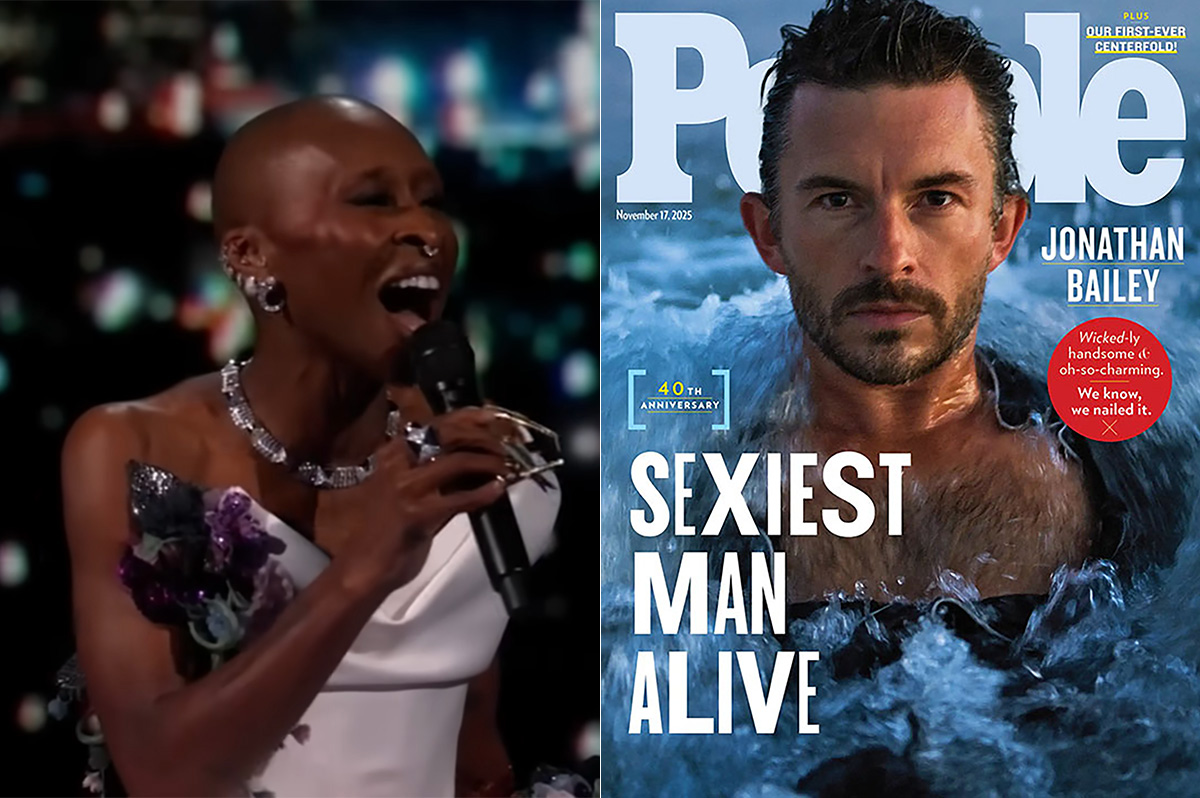
Although 2025 was a year marked by countless attacks on trans rights and political setbacks, the year also saw brilliant queer artists continuing to create art. From Cannes and Sundance Award winners now vying for Oscar consideration to pop icons entering new stages of their careers, queer people persevered to tell their stories through different media.
With the state of the world so uncertain, perhaps there’s no more vital time to celebrate our wins, as seen through some of this year’s top pop culture moments. While there’s no collection of 10 stories that fully encompass “the most important” news, here are some events that got the gays going:
10. ‘Mysterious Gaze of the Flamingo’ wins big at Cannes
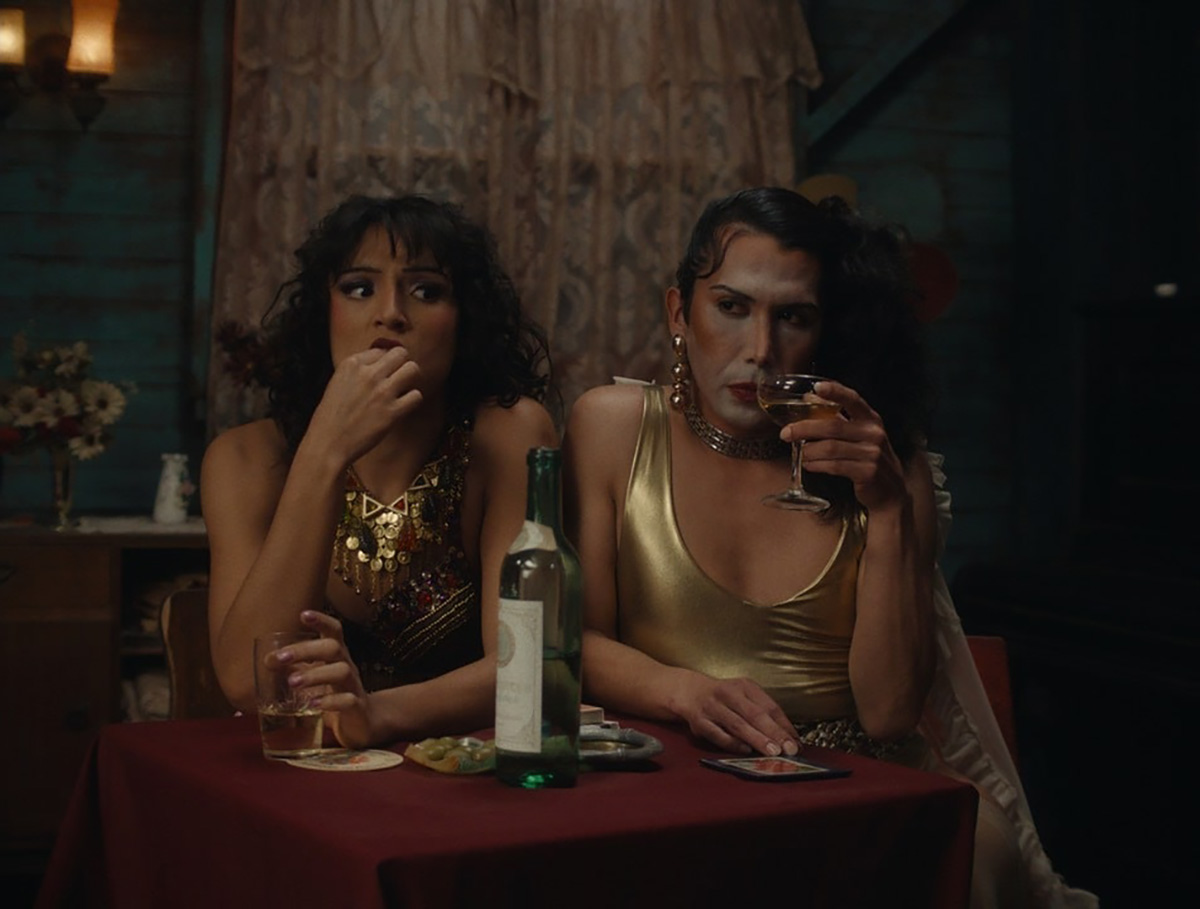
The Cannes Film Festival has become a crucial start for films hoping to make their way to the Oscars, and first-time director Diego Céspedes won the top Un Certain Regard prize for his intimate western “The Mysterious Gaze of the Flamingo.” The film is set in the ‘80s and is intended as an allegory for the AIDS epidemic. Seeing a film that unpacks vital queer history win one of the most coveted awards at Cannes has been a huge point of pride in the independent filmmaking community.
Since the film bowed at Cannes, it has been selected as Chile’s Oscar entry in the Best International Feature race. Speaking with The Blade during the film’s AFI Fest run in October, Céspedes said: At first, I was kind of scared to have this campaign position in the times that we’re living [in] here. But at the same time, I think the Oscars mean a huge platform — a huge platform for art and politics.”
9. ‘The Last of Us’ returns for an even gayer season 2
While the first season of The Last of Us gave us one of TV’s most heartbreaking queer love stories in the episode “Long, Long Time,” Season 2 doubled down on its commitment to queer storytelling with the blossoming relationship between Ellie (Bella Ramsey) and Dina (Isabela Merced). The show expanded on the pair’s relationship in the original video game, making it perhaps the central dynamic to the entire season. That unfortunately came with more homophobic backlash on the internet, but those who checked out all the episodes saw a tender relationship form amid the show’s post-apocalyptic, often violent backdrop. For their performance, Ramsey was once again nominated for an Emmy, but Merced deserved just as much awards attention.
8. ‘Emilia Pérez’ sparks controversy
Jacques Audiard’s genre-bending trans musical “Emilia Pérez” proved to be an awards season juggernaut this time last year, winning the Golden Globe for Best Musical/Comedy. But when the lead star Karla Sofia Gascón’s racist, sexist, and homophobic old tweets resurfaced, the film’s Oscar campaign became a tough sell, especially after Netflix had tried so hard to sell Emilia Pérez as the “progressive” film to vote for. Mind you, the film had already received significant backlash from LGBTQ+ audiences and the Mexican community for its stereotypical and reductive portrayals, but the Gascón controversy made what was originally just social media backlash impossible to ignore. The only person who seemed to come out of the whole debacle unscathed was Zoe Saldaña, who won the Oscar for Best Supporting Actress over Ariana Grande.
7. ‘Sorry, Baby’ establishes Eva Victor as major talent
Back in January at the Sundance Film Festival, Eva Victor (known by many for her brand of sketch comedy) premiered their directorial debut “Sorry, Baby” to rave reviews, even winning the Waldo Salt Screening Award. Victor shadowed Jane Schoenbrun on the set of “I Saw the TV Glow,” and seeing Victor come into their own and establish such a strong voice immediately made them one of independent cinema’s most exciting new voices. A memorable scene in the film sees the main character, Agnes (played by Victor), struggling to check a box for male or female, just one example of how naturally queerness is woven into the fabric of the story.
Most recently, Victor was nominated for a Golden Globe for her performance in the film, and she’s represented in a category alongside Jennifer Lawrence (“Die My Love”), Jessie Buckley (“Hamnet”), Julia Roberts (“After the Hunt”), Renate Reinsve (“Sentimental Value”) and Tessa Thompson (“Hedda”). The film also received four Independent Spirit Award nominations overall.
6. Paul Reubens comes out in posthumous doc
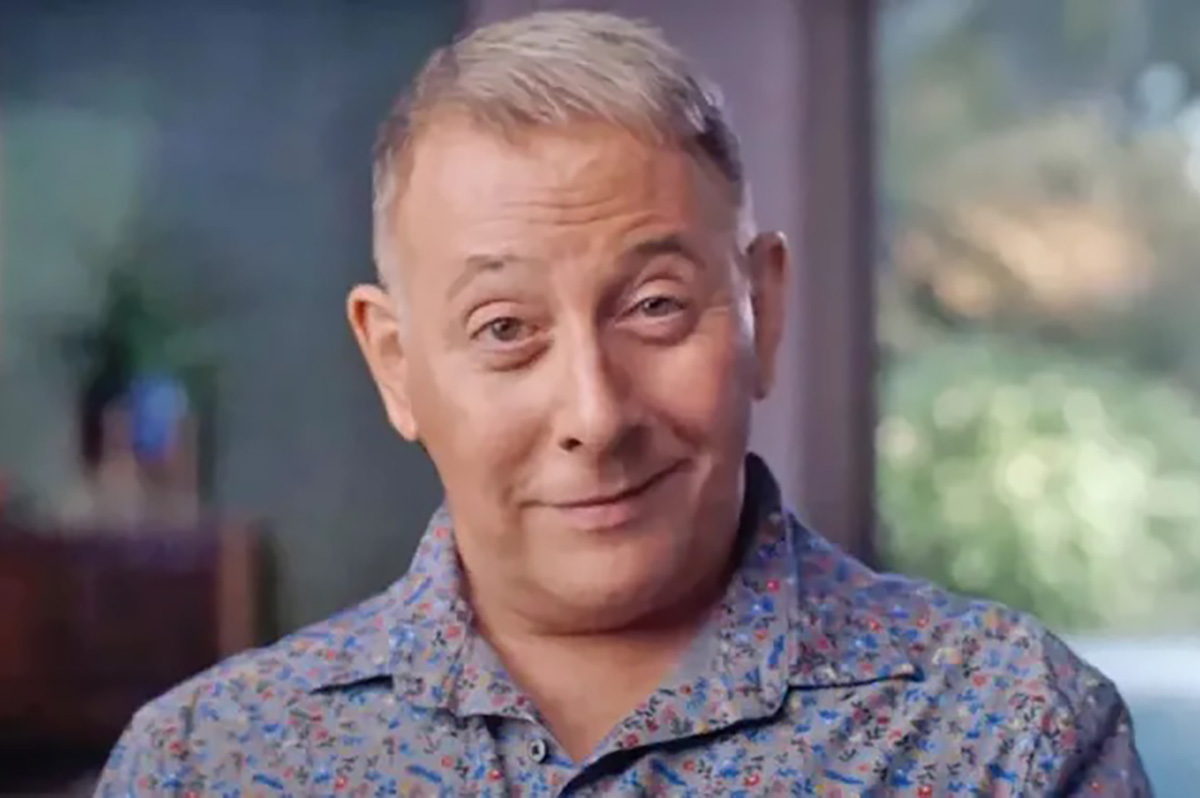
While Paul Reubens never publicly came out as gay before passing away in 2023, the two-part documentary “Pee-wee as Himself” premiered back in May on HBO Max, giving the legendary comedian a chance to posthumously open up to the world. Directed by Matt Wolf, the documentary explores how Reubens found his alter ego Pee-Wee Herman and why he kept his private life private.
The documentary won an Emmy in the Outstanding Documentary or Nonfiction Special category and remains one of the most critically acclaimed titles of the year with a 100% Rotten Tomatoes score. Also worth noting, the National Geographic documentary Sally told the posthumous coming out story of Sally Ride through the help of her long-time partner, Tam O’Shaughnessy.
5. Lady Gaga releases ‘Mayhem’
Lady Gaga entered a new phase of her musical career with the release of Mayhem, her seventh album to date. From the frenzy-inducing pop hit Abracadabra to the memorable Bruno Mars duet featured on “Die With a Smile,” seeing Gaga return to her roots and make an album for the most die-hard of fans was especially rewarding after the underwhelming film releases of “House of Gucci” and “Joker: Folie à Deux.” Gaga has been touring with The Mayhem Ball since July, her first arena tour since 2018. She even extended her tour into 2026 with more North American dates, so the party isn’t stopping anytime soon. And Gaga is even set to make an appearance next May in “The Devil Wears Prada 2.”
4. Cynthia Erivo, Ariana Grande perform at the Oscars
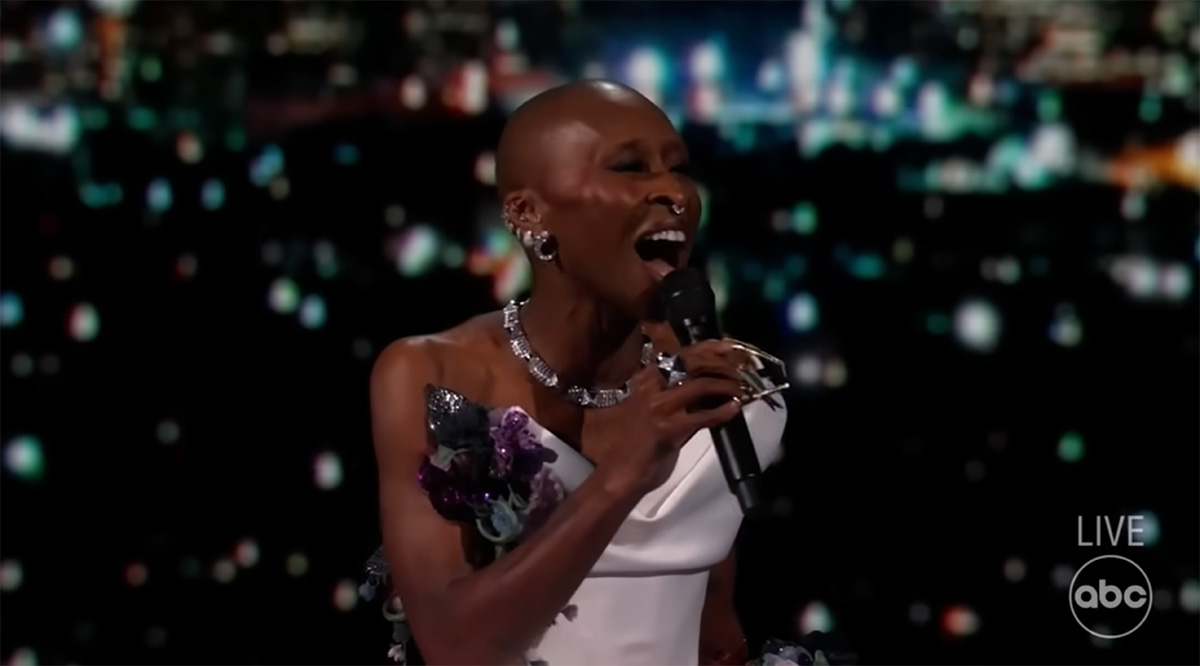
While “Wicked: For Good” didn’t quite reach the heights of the first film, we will forever have Cynthia Erivo and Ariana Grande’s breathtaking live performance that opened the 97th Academy Awards. The pair sang a rendition of “Over the Rainbow,” “Home,” and “Defying Gravity,” paying proper homage to the original 1939 “Wizard of Oz.” Even non-Wicked fans can’t deny how magical and brilliantly staged this performance was. With both Erivo and Grande up for acting Oscars last year, they’re hoping to repeat success and make history with consecutive nominations. Either way, let’s hope there’s another live performance in the making, especially with two new original songs (The Girl in the Bubble and No Place Like Home) in the mix.
3. Indya Moore speaks out against Ryan Murphy
Indya Moore has consistently used social media as a platform for activism, and in September, posted a 30-minute Instagram live speaking out against “Pose” co-creator Ryan Murphy. Moore claimed that Murphy wasn’t being a true activist for trans people. “Ryan Murphy, we need you to do more. You need to address the racism, the violence, and the targeting of people on your productions, Ryan Murphy. You do need to make sure trans people are paid equally. Yes, Janet did the right thing,” Moore said. Murphy was also back in the headlines this year for the critically panned “All’s Fair” and the controversial “Monster: The Ed Gein Story” starring Laurie Metcalf and Charlie Hunnam.
2. Cole Escola wins Tony for Best Leading Actor
Few pop culture moments this year brought us together more than Cole Escola winning a Tony award for “Oh, Mary!” the Broadway show they created, wrote and starred in (we love a triple threat!) Escola made history by becoming the first nonbinary person to win a Tony in the leading actor category, and seeing them excitedly rush to the stage wearing a Bernadette Peters-inspired gown instantly became a viral social media moment.
The cherry on top of Escola’s major moment is the recent news that they are writing a Miss Piggy movie with Jennifer Lawrence and Emma Stone producing — news that also broke the internet for the better. We cannot wait!
1. Jonathan Bailey makes gay history as ‘Sexiest Man Alive’

The same year as his on-screen roles in blockbusters “Jurassic World Rebirth” and “Wicked: For Good,” Jonathan Bailey made history as the first openly gay man to be named People magazine’s “Sexiest Man Alive.” The fact that it took 40 years for an openly gay man to earn the title is a signifier of how far we still have to go with queer representation, and seeing Bailey celebrated is just one small step in the right direction.
“There’s so many people that want to do brilliant stuff who feel like they can’t,” he told PEOPLE, “and I know the LGBT sector is under immense threat at the moment. So it’s been amazing to meet people who have the expertise and see potential that I could have only dreamed of.” In 2024, Bailey founded the charity titled The Shameless Fund, which raises money for LGBTQ+ organizations.

